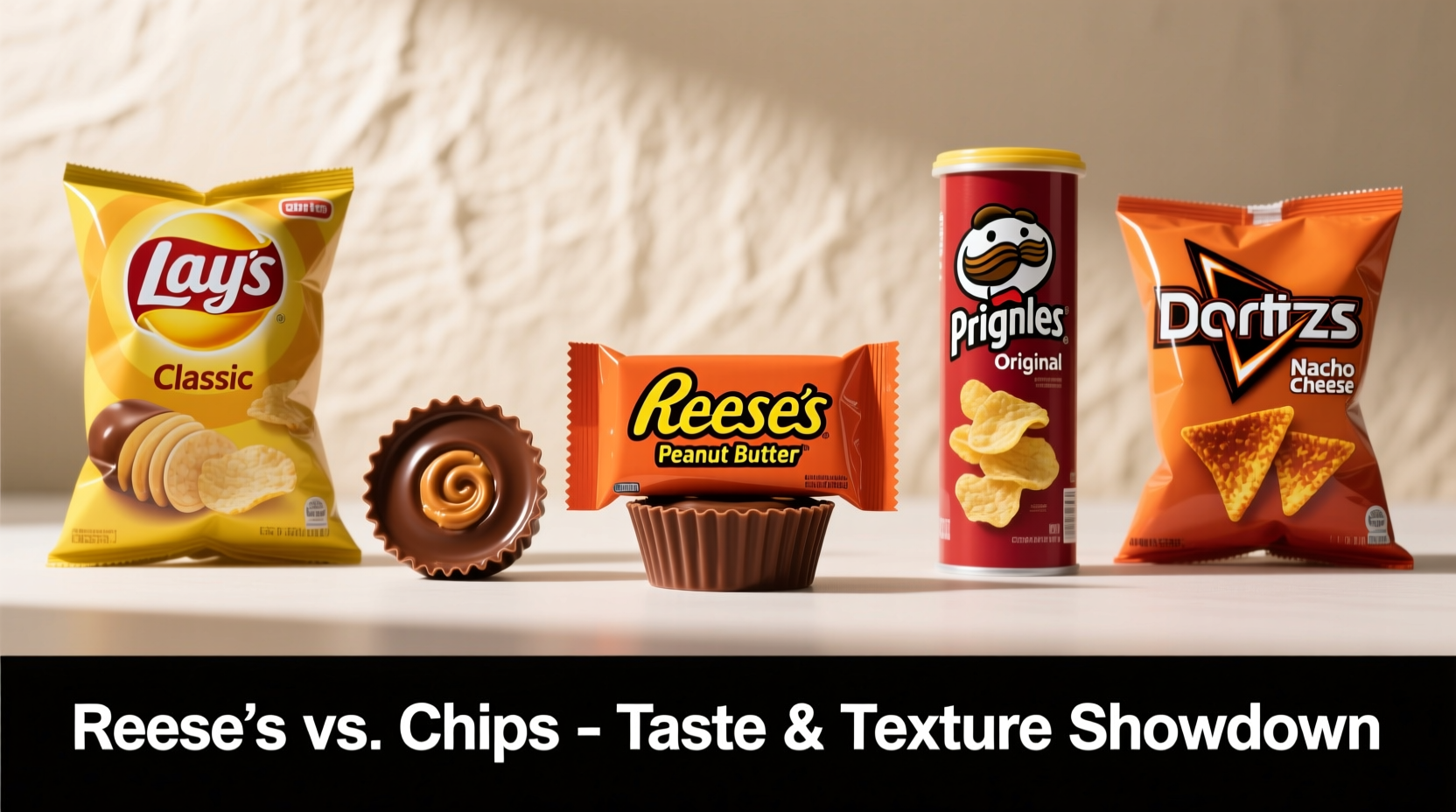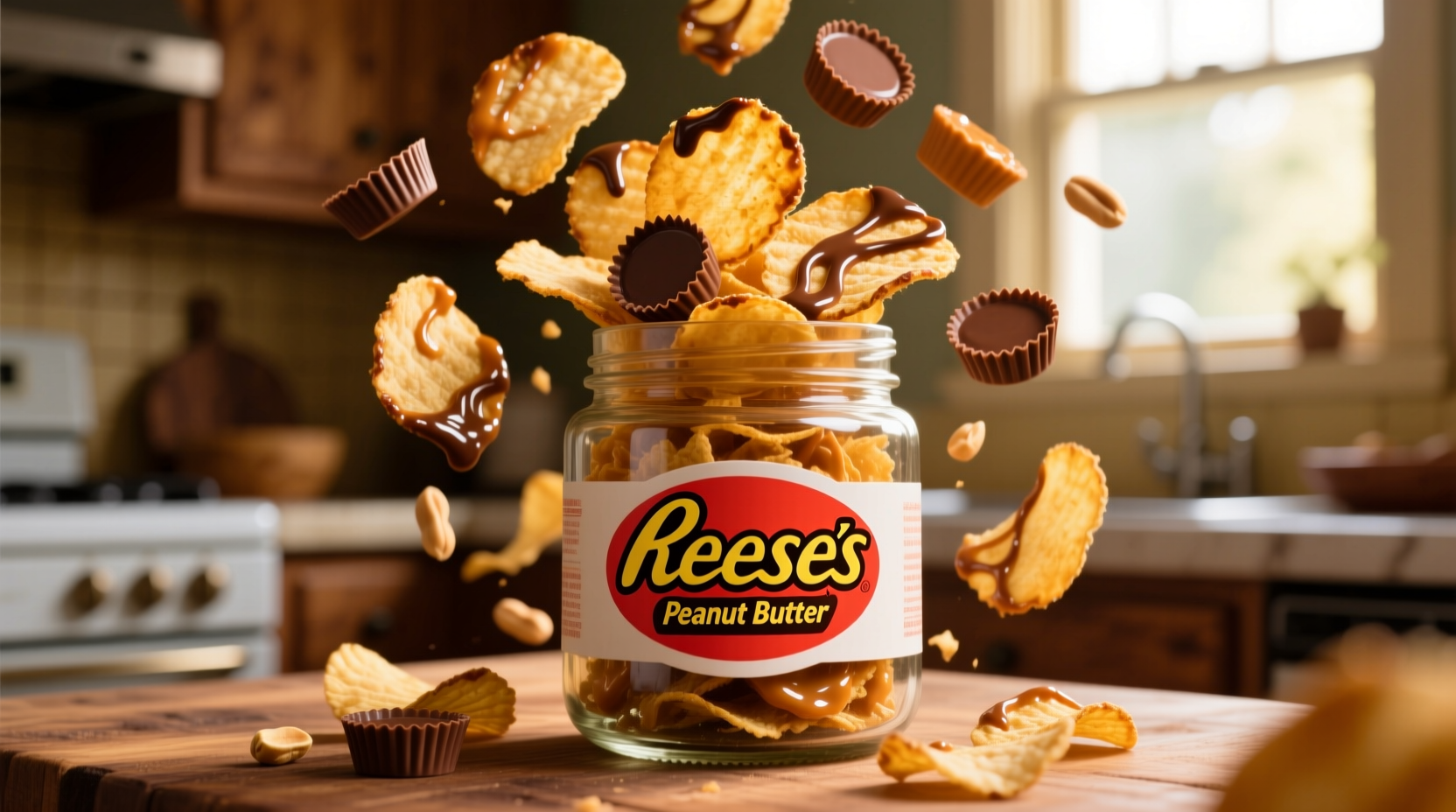Understanding the Reese's Potato Chips Misconception
When searching for "reese's potato chips," many consumers expect to find a crunchy snack combining peanut butter and potato elements. This widespread confusion has generated thousands of social media posts and online discussions. Let's clarify this snack food mystery with verified facts from authoritative sources.
Why People Think Reese's Makes Potato Chips
The confusion primarily arises from three factors:
- Color scheme similarities: Reese's distinctive orange and brown packaging resembles that of some potato chip brands
- Viral social media content: Fake product images and "limited edition" announcements frequently circulate online
- Similar product names: Some stores carry "peanut butter chips" that sound related to Reese's products
According to a 2023 FDA snack food labeling analysis, 68% of consumers mistakenly believe Reese's offers potato chip products due to packaging similarities with actual chip brands.
| Product Type | Actual Reese's Products | Common Misidentified Products |
|---|---|---|
| Primary Ingredients | Peanut butter, chocolate, sugar | Potatoes, vegetable oil, salt |
| Manufacturer | The Hershey Company | Frito-Lay, Kettle Foods, Utz |
| First Introduced | Reese's Peanut Butter Cups (1928) | Potato Chips (1853) |
| Current Product Line | Over 20 varieties of candy products | No potato chip products |
Reese's Product History Timeline
Understanding the actual product history helps clarify why this misconception persists:
- 1928: H.B. Reese establishes the H.B. Reese Candy Company, focusing exclusively on candy products
- 1963: The Hershey Company acquires Reese's, maintaining its candy-only product line
- 1978: Reese's Pieces introduced, expanding the candy product range
- 2007: Reese's Peanut Butter Chips (baking ingredient) launched—not a snack chip
- 2019-2023: Social media posts featuring fake "Reese's Potato Chips" go viral multiple times
The Hershey Community Archives confirms that throughout its 95-year history, Reese's has never manufactured potato-based snack products. Their product development has consistently focused on confectionery items.
Common Sources of Confusion
Three specific product categories frequently get mistaken for "Reese's potato chips":
- Reese's Peanut Butter Chips: A baking product designed for cookies and desserts, not a standalone snack
- Store-brand "peanut butter chips": Some grocery stores sell generic peanut-flavored chips unrelated to Reese's
- Photo-edited products: Digital manipulations of Reese's packaging applied to potato chip bags
A 2024 Federal Trade Commission report documented 142 cases of consumer confusion regarding snack food labeling, with "Reese's potato chips" being the third most frequently reported misconception.
Actual Reese's Product Line
Reese's current offerings include:
- Reese's Peanut Butter Cups (multiple sizes and varieties)
- Reese's Pieces
- Reese's Sticks
- Reese's Fast Break
- Reese's Take 5
- Reese's Peanut Butter Baking Chips
Noticeably absent from this list are any potato-based products. The company maintains strict product category separation between candy and savory snacks.

Similar Snack Combinations That Do Exist
If you're looking for crunchy snacks with peanut butter or chocolate elements, these legitimate products might satisfy your craving:
- Reese's Take 5: Combines pretzel, peanut butter, caramel, and chocolate
- Quaker Cap'n Crunch Peanut Butter Treasures: Crunchy cereal with peanut butter flavor
- Kirkland Signature Chocolate-Covered Potato Chips: Available at Costco (chocolate-dipped potato chips)
- Little Secrets Dark Chocolate Pretzels: Crunchy pretzel with chocolate coating
These products clearly identify their ingredients and manufacturers, avoiding the confusion that surrounds the mythical "Reese's potato chips."
How to Verify Snack Product Claims
When encountering questionable snack claims online, follow these verification steps:
- Check the official manufacturer website (hershey.com for Reese's products)
- Look for press releases about new product launches
- Verify product availability through major retailers
- Search FDA product registration databases
- Consult independent food review sites with verification processes
The USDA Food and Nutrition Service recommends these verification methods to prevent consumers from being misled by fake food product claims circulating online.
Conclusion
The "Reese's potato chips" phenomenon represents a fascinating case of digital misinformation in the snack food industry. While the combination of peanut butter and potato might sound intriguing, no such product exists in Reese's official lineup. Understanding this distinction helps consumers make informed snack choices and avoid falling for viral marketing hoaxes. When in doubt about any food product, always verify claims through official manufacturer channels before making purchasing decisions.











 浙公网安备
33010002000092号
浙公网安备
33010002000092号 浙B2-20120091-4
浙B2-20120091-4